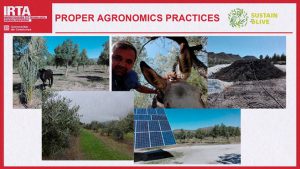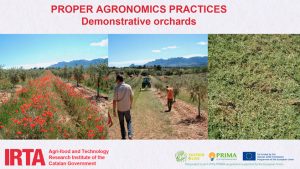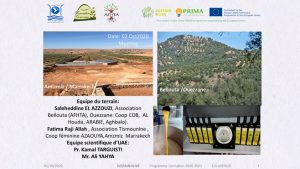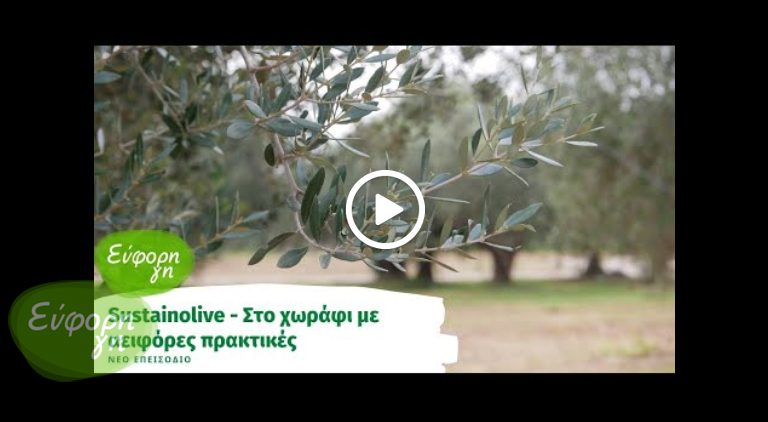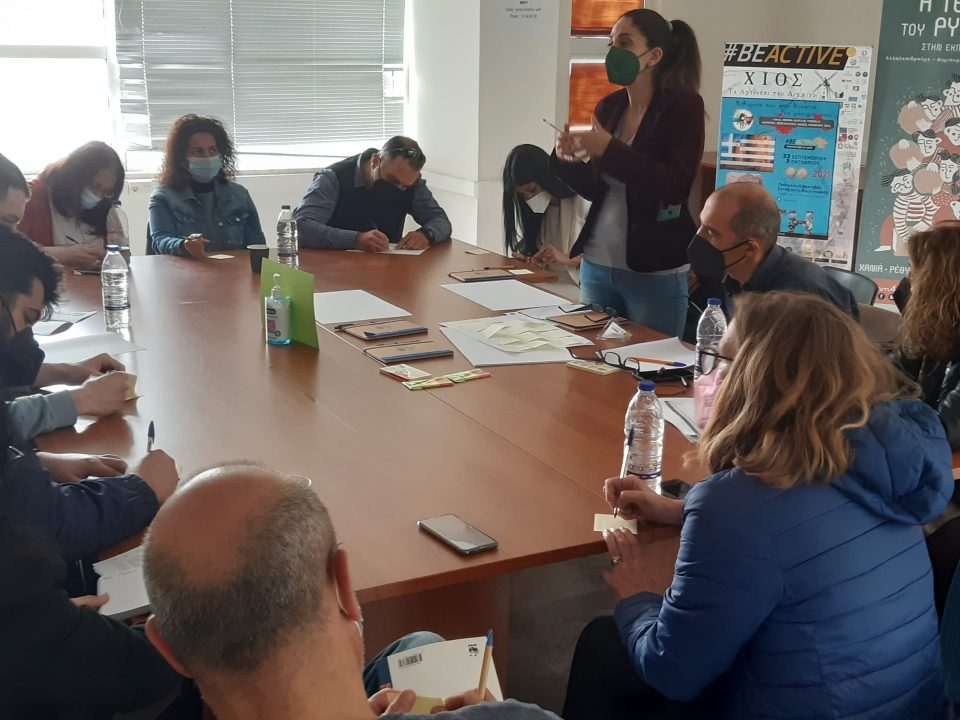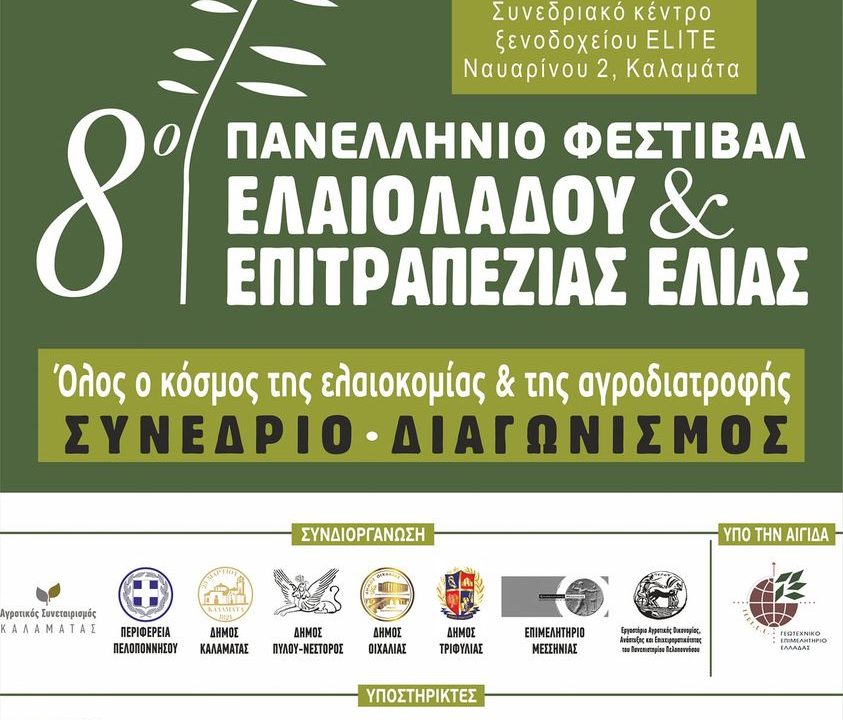
2nd SUSTAINOLIVE International Meeting has started, with the participation of 50 people from the 22 institutions
29 Σεπτεμβρίου, 2020
SUSTAINOLIVE en la radio. Belén Fernández, investigadora del IRTA, socio del proyecto.
7 Οκτωβρίου, 2020Last Friday, October 2, was the closing ceremony of the 2nd annual and international meeting of SUSTAINOLIVE

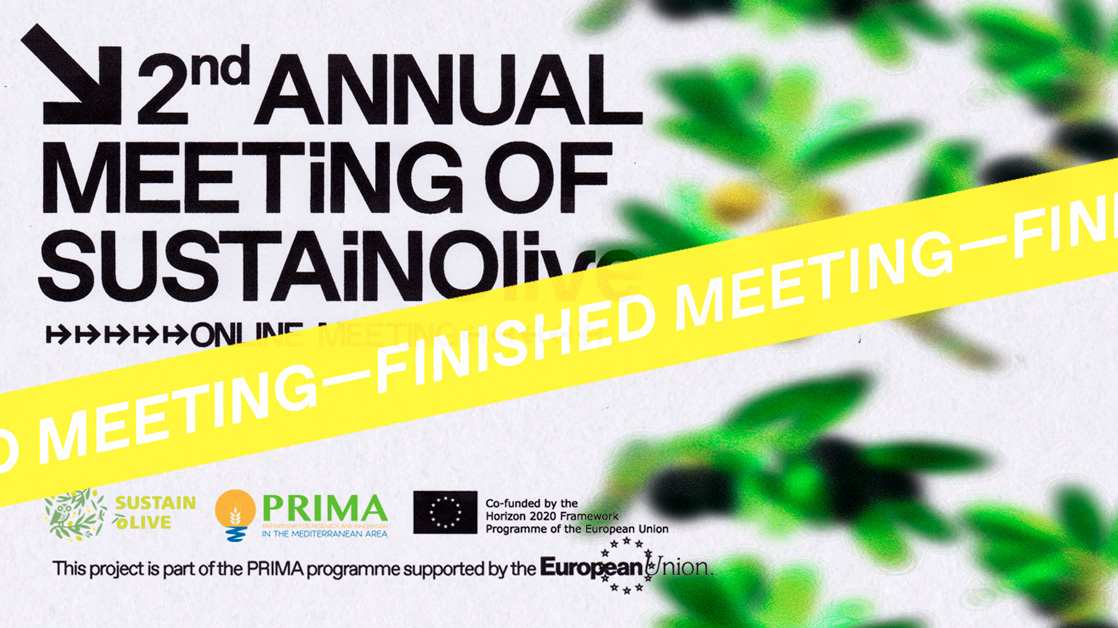
Last Friday, October 2, was the closing ceremony of the 2nd annual and international meeting of SUSTAINOLIVE. During the 4 days of meeting, the partnership of SUSTAINOLIVE had the opportunity to learn about the progress and outlook of the planned actions of the 7 work areas of the SUSTAINOLIVE project.
The work sessions were closely followed by the partners of the 22 entities belonging to 6 countries of the Mediterranean area. In the online meeting, the attendees averaged about 50 people and, in the closing ceremony, the project coordinator, Roberto García Ruiz (University of Jaén) congratulated all the speakers for the quality of their presentations and he thanked the participants for their contributions in the debates arising during the sessions.
Before the closing, a workshop was held with the active participation of the leaders of the 9 olive oil producer associations. They showed the training and demonstration actions planned in the project with the overall goal of training the farmers and oil mill staff in sustainable practices in the olive grove and in the olive oil production. The topics selected were based on the needs detected in each country and included: i) composting by-products from oil mills, ii) pruning the olive grove, iii) biological control of pests and diseases, and iv) the management of spontaneous and seeded cover crops. The special circumstance of COVID 19 stands out, which makes it difficult to accurately schedule the training and demonstration actions.
Juan Francisco Hermoso from the Institute for Agrifood Research and Technology (IRTA), an organism of the Generalitat of Catalonia, showed the catalog of training courses related to olive groves and oil mills, as well as the online platform RURALCAT designed to support producers.
Saleheddine El Azzouzi, from the Acorn Association, and Fatima Raji Allah, of the Tismounine Association of Morocco, showed the training proposals aimed to valorise by-products from oil mills by the production of soap and construction elements.
From Portugal, Mariana Teles Branco from the Center of Olive Oil Studies and Promotion Alentejo , suggested the organization of training and demonstration actions jointly with ESPORAO and in collaboration with the Institute of Mediterranean Agricultural and Environmental Sciences of the University of Évora ( ICAAM). These actions will be aimed at training for best practices in olive tree pruning.
Giorgios Kokkinos from the NILEAS producer group and Antonopoulos Michail, from the Kalamata Cooperative in Greece presented their training and demonstration proposals for local farmers focused on pruning, the use of oil mill by-products and the application of organic matter to the soil.
Giorgio Pace, from the Italian Olive Consortium (UNAPROL), proposed online training actions to overcome the difficulties regarding the by COVID 19.
Lastly, Moisés Caballero, from the Protected designation of Origin of Estepa(CRDOE), highlighted that the training and demonstrative events will be organized under the auspices of the José Humanes Chair for the promotion of sustainable management practices in the cultivation of olive trees. The large catalog of videos showing the demonstrative and training events organized under this Chair have been visited by nearly 300,000 people, and they are currently immersed in a project aimed to set up a database and online services through a mobile application.
This work session was coordinated by Alejandro Gallego from the Tekieroverde company, responsible for the workpackage 7 of SUSTAINOLIVE. Alejandro Gallego is in charge of the coordination of the training and demonstration actions of the project. During the session, José Muñoz (ICAAM) proposed the organization of a specific meeting to design specific methodologies to boost the knowledge transfer to the olive farmers, as well as the dissemination of good practices between countries to solve specific problems.
During the next few days we will disseminate the summaries of the presentations of the different work packages.



